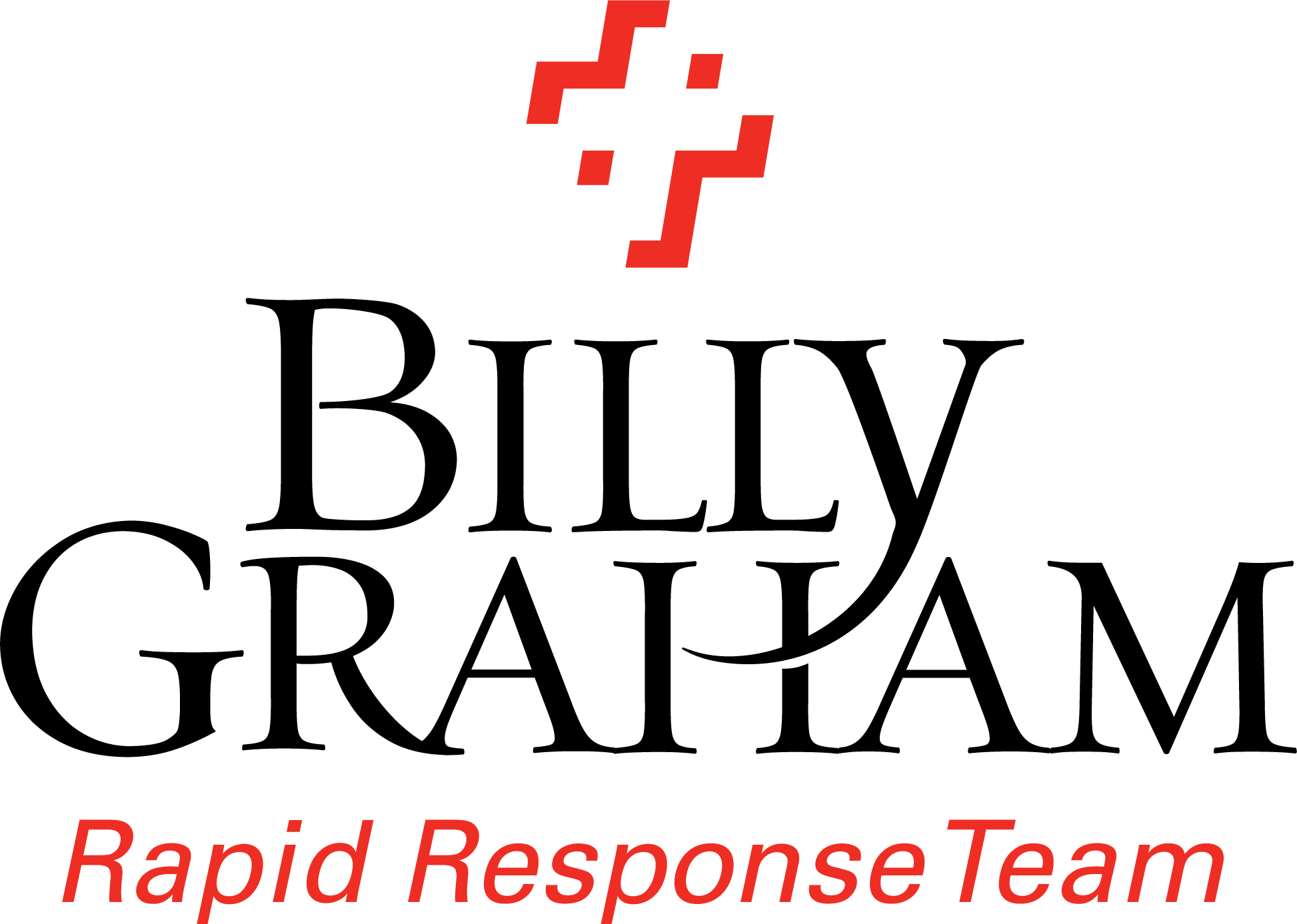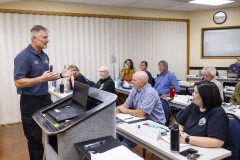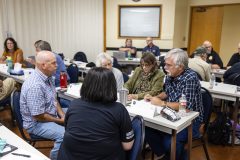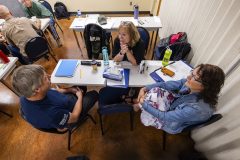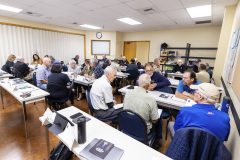In response to the growing need for emotional and spiritual care to law enforcement officers, the Billy Graham Rapid Response Team (BG-RRT) has developed the Law Enforcement Chaplain Training Program (LECTP), taught by former law enforcement officers. This Biblically based training has no prerequisites and is free of charge. It is open to active-duty/retired law enforcement officers, chaplains, pastors, and anyone interested in serving regardless of their experience in law enforcement. Note: this training does not qualify participants to be certified as a “police chaplain” or a Billy Graham Rapid Response Team (BG-RRT) chaplain. If you are interested in training to become a BG-RRT chaplain, find more information here.
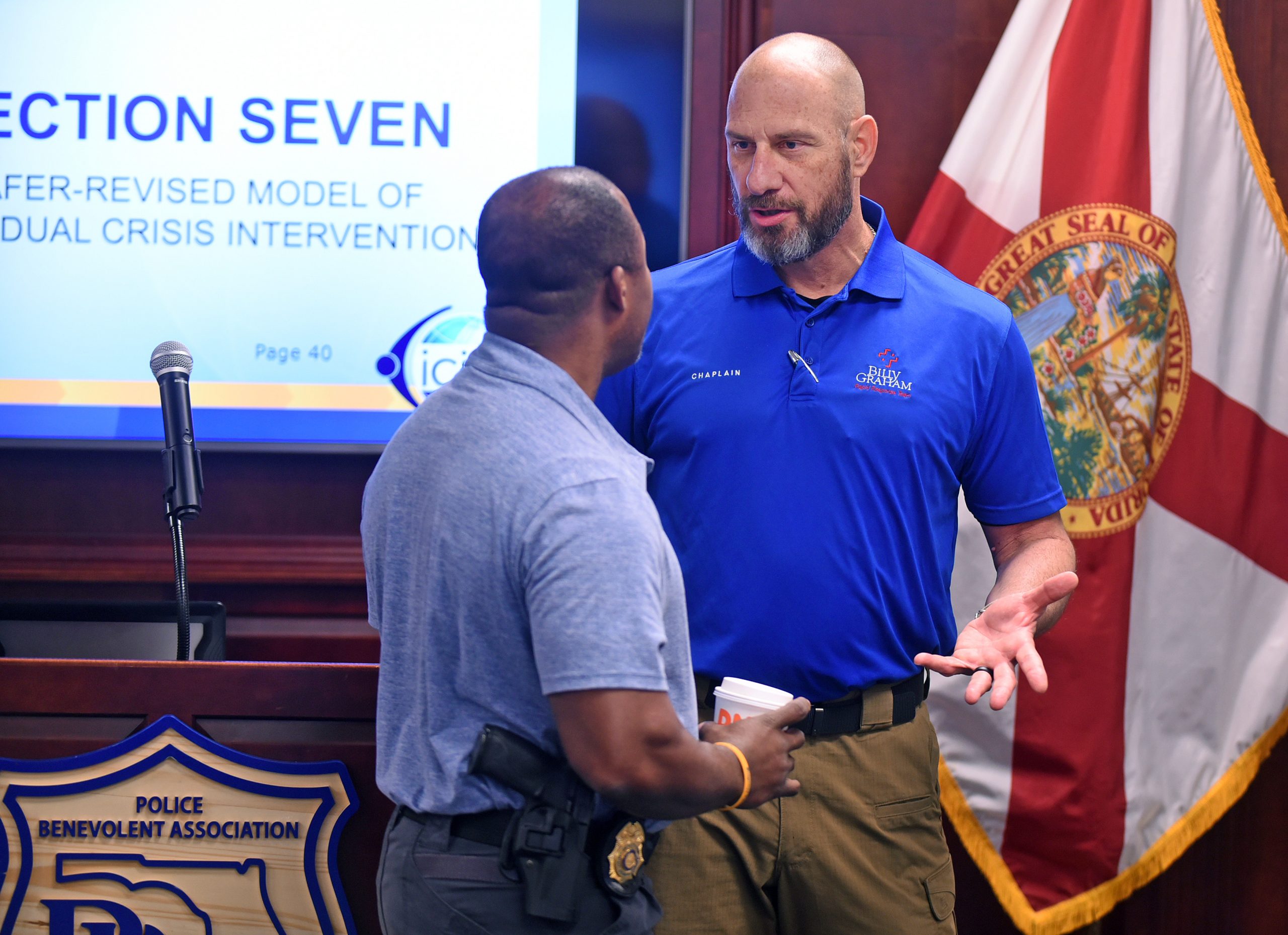
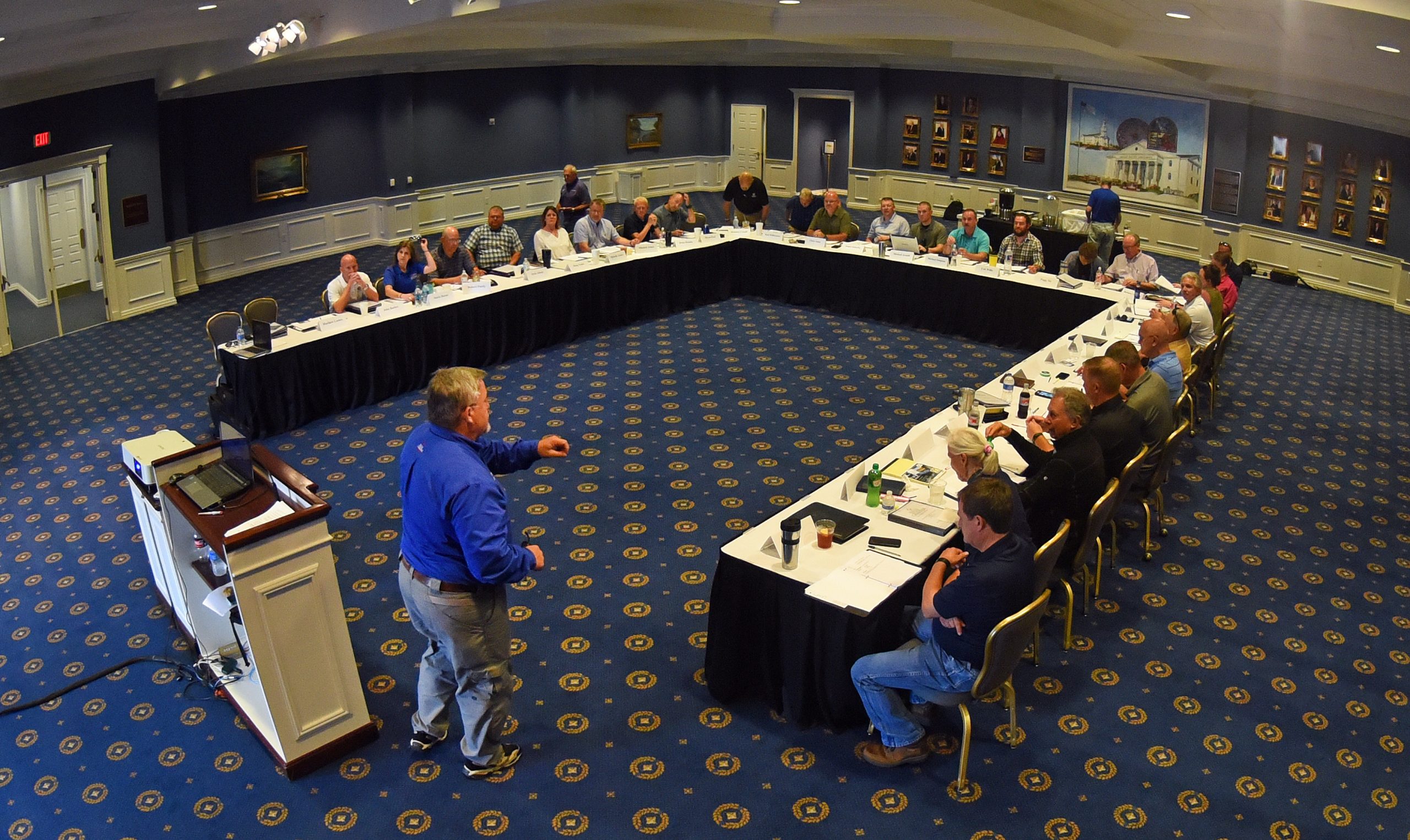
Training objectives:
At the end of this course, students should be able to accomplish the following training objectives:
- Define law enforcement ministry and explain why it is necessary.
- Identify and explain the Biblical foundations of law enforcement ministry.
- Understand the history of law enforcement.
- Explain the unique challenges faced by law enforcement officers, including the physical, mental, social, and spiritual challenges.
- List common law enforcement personality traits and explain how they affect ministry.
- Discuss issues that law enforcement officers face:
- Grief-defining and discussing impacts
- Suicide, including risk factors, warning signs, and intervention strategies
- Substance abuse and the role that pain plays in it
- Explain God’s plan on how to handle pain in our lives.
- Discuss the ways that law enforcement families are impacted.
- Describe the practical aspects of ministry to law enforcement officers.
- Identify your role as police chaplain in various specific ministry situations.
- Discuss compassion fatigue and vicarious traumatization.
- List the ways chaplains can care for themselves and avoid burnout.
If you have previously registered and need to change class location, email [email protected] to cancel your reservation before signing up for an additional site.
*Classes are subject to cancellation in the event of low enrollments 30 days prior to the training.
